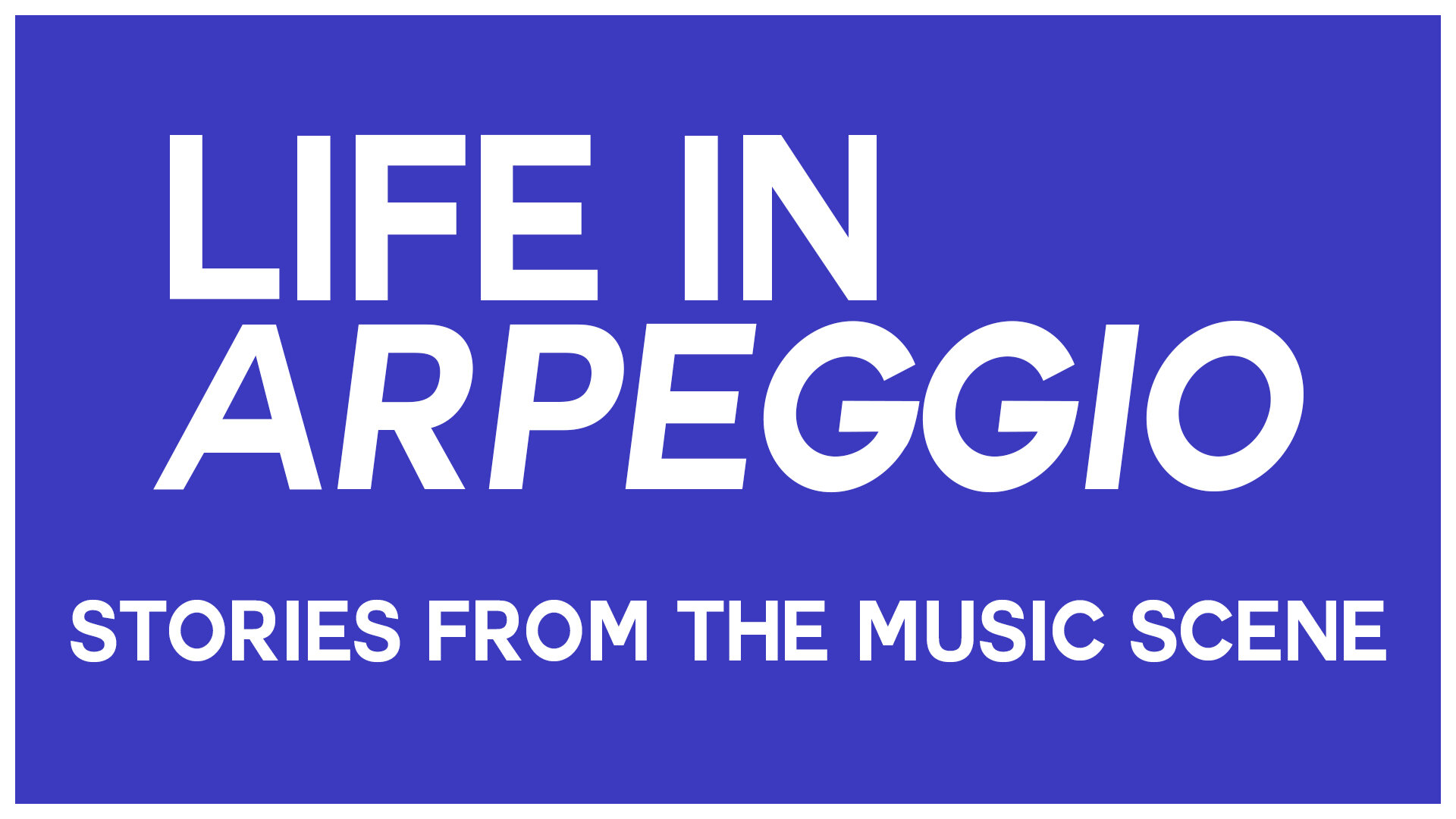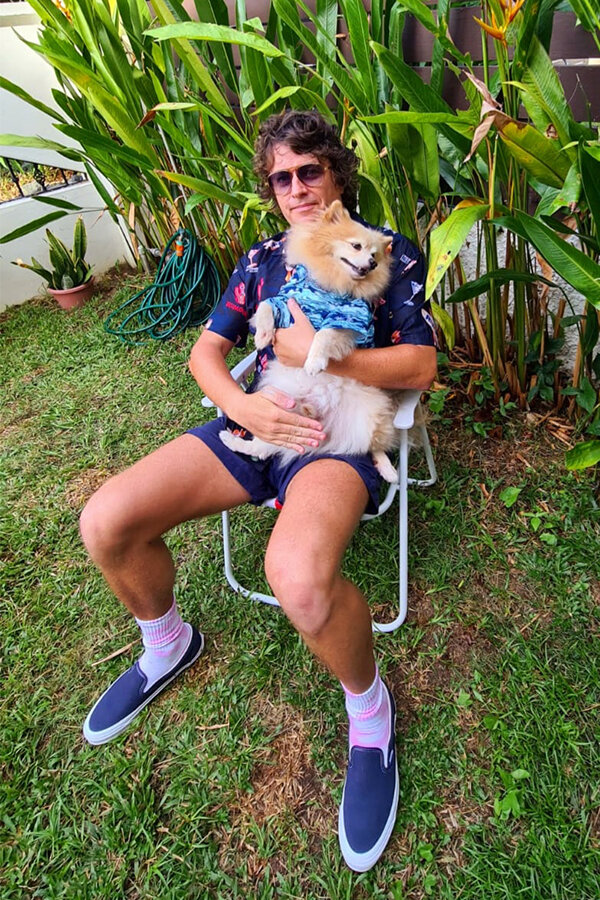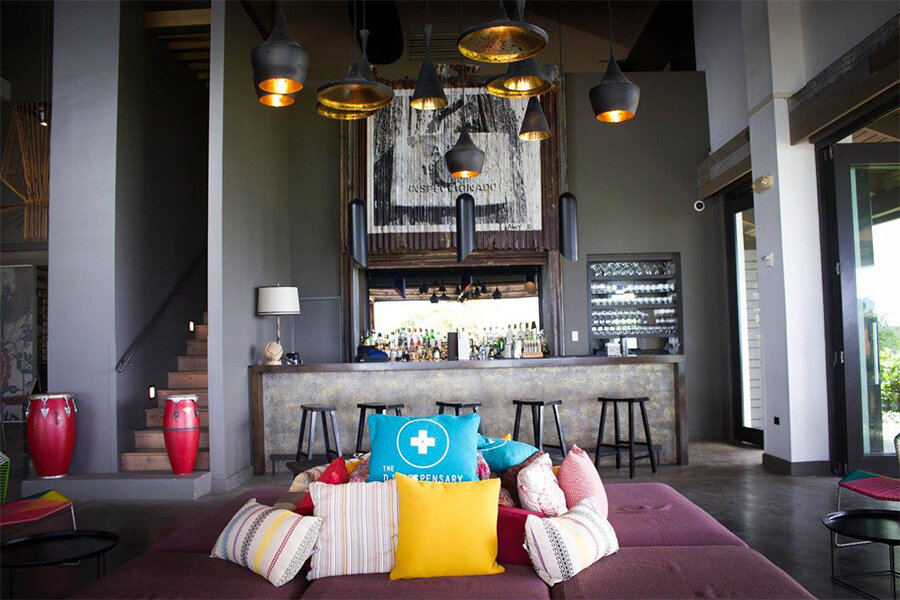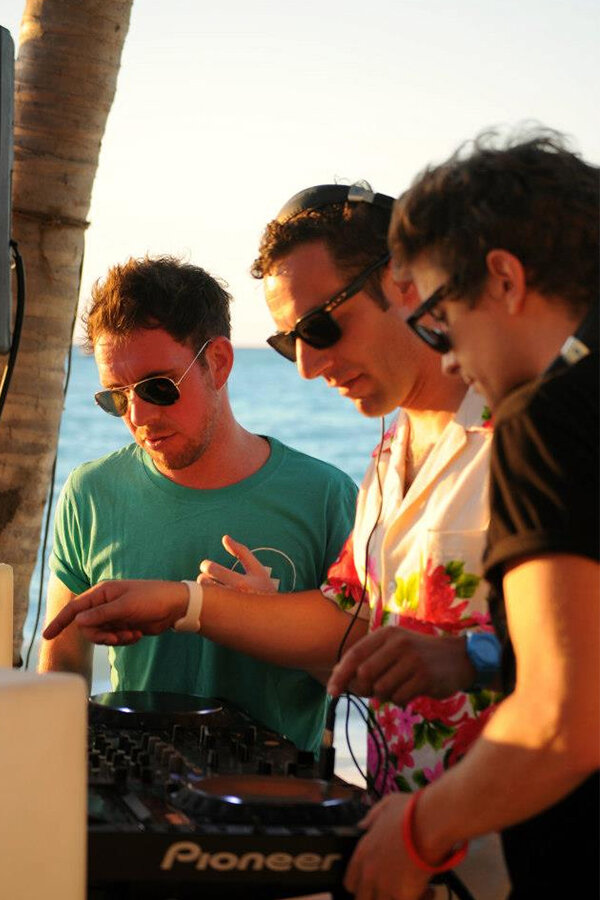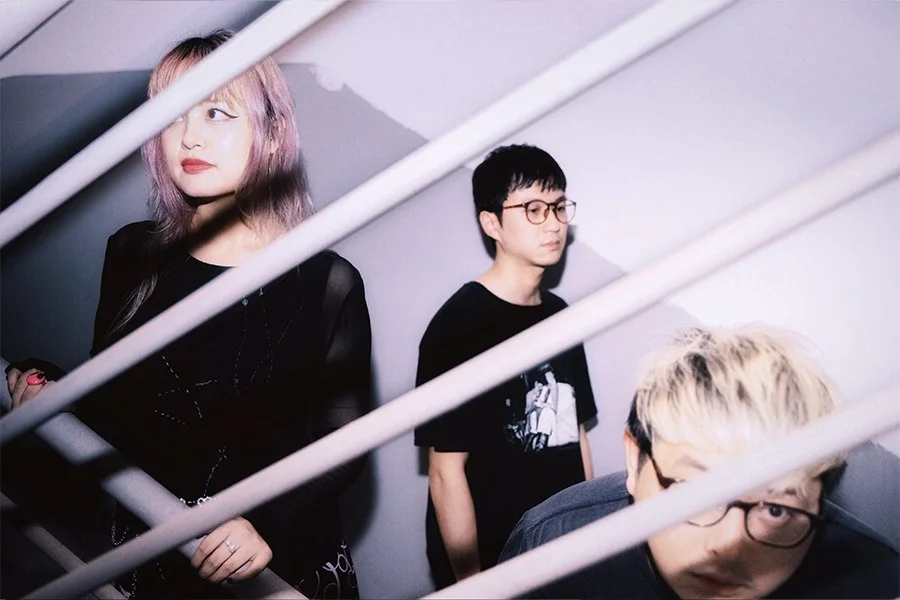The DJ Dispensary Reveals A Government-Approved Workaround For The Local DJ Limbo
Matty Wainwright of The DJ Dispensary has found a solution that might give local DJs a boost (Credit: Courtesy of Matty Wainwright, taken at Potato Head Bali in 2016)
If there’s one thing more infuriating than the nationwide ban on DJ performances, it’s the smog of uncertainty that’s lingered over the past year. While the authorities have gradually allowed the live gig sector to open up, they’ve remained distant and hushed when it comes to the nightlife economy, putting a strain on more than just rice bowls, but the overall culture of the city. There have, however, been notable figures in the scene digging for answers, and trying to establish a channel of communication with government bodies to correct flawed misconceptions and propose safe reopening strategies. Matty Wainwright, a Singapore-based stalwart of the industry, is one such advocate who’s revealed that his efforts haven’t been falling on deaf ears.
Matty has conducted DJ retreats and masterclasses in idyllic getaways as far as CHIC Punta Cana in the Dominican Republic (Credit: The DJ Dispensary, taken in 2015)
As director of events and entertainment management agency, The DJ Dispensary, Matty is a seasoned veteran with decades of experience all over the world. For months, while the scene’s remained dormant, he’s been using his wisdom and expertise to help resuscitate the art of the live DJ experience. Through his agency, Matty’s worked with non-nightclub venues like Potato Head Singapore, Burnt Ends, 1880, The Capitol Kempinski Hotel, and Rumours Beach Club, enhancing their ambience with properly curated music selection. Professionally, he has a track record of using DJ sets to build vibes and forge venue identity, unlike the government’s misconstrued view that dance music will always result in a chaotic, ill-behaved rave. Matty has been using his voice to quell these concerns, and it seems like it’s finally beginning to make headway.
A good DJ doesn’t throw a rave in a place like this. A good DJ kicks off a vibe that fits (Credit: Courtesy of Matty Wainwright)
Through the Singapore Nightlife Business Association (SNBA), Matty has been in talks with the authorities, trying to find a compromise that can help put local DJs back in business. And in this discourse, it turns out that he didn’t just pick up a shrewd understanding of why the authorities perceive the activity of DJ-ing the way they do, but actually managed to secure a momentary alternative for selectors who miss curating soundtracks for live audiences. This even culminated in a recent experience where Matty was legally allowed to select music for guests in attendance at a F&B venue. Sure, this came with plenty of caveats, but it’s a step in the right direction for the gradual reawakening – and more significantly, the understanding – of DJ sets.
In this transparent interview with Matty, he reveals his observations from these illuminating discussions. What do the authorities not like? What are they okay with? And how did he pull off his proposed workaround? Read on to find out.
Meet Matty and his furry friend (Credit: Courtesy of Matty Wainwright)
Hi Matty. First up, can you tell us the origin story of The DJ Dispensary, and how it’s evolved through the years?
Hi Life In Arpeggio! The DJ Dispensary was founded in 2012. By that time, I had been DJ-ing for about 14 years internationally and was getting a lot of contract work from luxury hotels and resorts around the world. The idea of tailored guest experiences was becoming a trend within the hotel industry, so we decided to pioneer ‘DJ Retreats’ and Masterclasses as part of our hotel collaborations and as standalone events. In 2013, we made Bali our home and spent the next six years DJ-ing and curating music with some of the island’s leading venues, before moving back to Singapore in 2018 where we have continued to add to our progressive list of clients both locally and internationally.
Matty’s agency has helped build the sonic identities of non-club venues all around the world (Credit: The DJ Dispensary)
Clearly, the pandemic has thrown a monkey wrench into the works of the agency. How have you tried to keep everything afloat in the midst of this chaos?
I work with some amazing venues in Singapore who value the work that we do such as Rumours Beach Club and Burnt Ends. We have been able to keep a sliver of work going, like keeping the in-house playlists updated or conducting DJ workshops. The DJ Masterclasses for kids that we held at Meatsmith and the adult classes at Mo Bar, Capella and The Capitol Kempinski, with the support of Bacardi, have also been a massive help in keeping us afloat. We’ve also been driving dogs to doggy daycare most weekdays and cycling for GrabFood deliveries trying to survive. Like most people in the industry, we didn’t qualify for government support and even with all of the above going on, we have only been able to bring in five to 10 per cent of our usual monthly income for the past 13 months, which is clearly not a good look.
Matty has been conducting DJ masterclasses for kids at partner establishments like Meatsmith (Credit: Courtesy of Matty Wainwright)
You’ve been an advocate of the scene’s survival and recovery in these trying times. Can you share some of the frustrations you’ve witnessed or experienced first-hand?
My main frustration is with the people who have a voice that could actually help raise the profile of the current grim situation we find ourselves in, but refuse to do so in favour of self-preservation and a penchant for covert complaining.
So you’ve also shared some proposals over the months regarding the restoration of music activities. Would you mind sharing some of these suggestions, and has it been an effective means of communication between yourself and the powers that be?
Andrew Ing from SNBA (Singapore Nightlife Business Association), in particular, was supportive and forwarded my proposal on to STB (Singapore Tourism Board). From there, it was escalated to the MTI (Ministry of Trade and Industry) and various task force ministers for deliberation. All of this took a couple of months, but overall, the process worked as well as can be expected and I sincerely thank them all for their help.
In terms of the proposal that was sent over, most of the F&B venues that I manage the music direction for generally a) operate during the day, b) are outdoors, and c) play ‘music for grown-ups’. Given the extremely low level of community cases since Q4 in 2020, and with how well most venues are managing all aspects of safe distancing, I proposed that it would make sense to ease back into things slowly and safely. This meant allowing the above ‘low-risk’ category of F&B venues that previously had an entertainment licence to re-engage music professionals first, leading the way for further re-opening of the ‘higher-risk’ elements of the industry in due course.
Matty understands that it’s going to be a long while till we can get back to this; scenes from The DJ Dispensary’s party at Panamericana with Horse Meat Disco in 2018 (Credit: The DJ Dispensary)
I believe that the benefits of doing so are enormous, from providing an accurate set of data for risk analysis to boosting staycation bookings in hotels and eventually setting the wheels in motion for a safe, progressive re-opening of the late night Singapore scene which we all miss. Having professionals control the sound levels, a laid-back track selection and flow of music throughout the day, leads to a safer, more compliant operation as well as increasing guest retention and revenue for the venue. Not to mention reinstating much-needed jobs and of course, keeping Singapore’s musical integrity intact!
With DJs and music professionals being, for the most part, abandoned over the past year, we’ve seen some of the less music-savvy venue operators and self-avowed nightlife maestros taking a chance to smash out their own personal music collections to the unfortunate general public. Skipping through tracks on their iPod with a swoosh of the wrist like some kind of deranged orchestra conductor; it’s been their time to shine. The incoherent cacophony of noise sounding like Saturday afternoon in the Forever 21 activewear aisle, foot-to-the-floor commercial tempos no matter the time of day, and sound levels way over the current legal decibel limit.
A cranked-up set of oomphy bangers would kill the vibe of a cosy spot like this (Credit: The DJ Dispensary)
Paradoxically, the reason why the current exasperatingly low 60db limit is imposed, and probably why the authorities are so apathetic to the plight of the DJ, is because of one such situation that happened just after the Circuit Breaker last year. During a time when DJs and music professionals were still banned from working, the soundsystem of a venue was being operated way too loud, with the wrong kind of music for the crowd and time of day, by people with no audio experience – and a task force minister was in attendance.
For all of the reasons above, I couldn’t see any reason why the powers that be wouldn’t want professionals to regain control of the music in Singapore’s venues. And to my surprise, they agreed with me… sort of.
Scenes from a DJ Retreat at Niyama Maldives in 2013 (Credit: Courtesy of Matty Wainwright)
Sort of, you say? What were the guidelines eventually permitted by the authorities?
My proposal for ‘Audio Visual Specialists’ to operate within F&B establishments was accepted by the authorities with an immediate start date, no trial period deemed necessary and the following stipulations:
Only recorded music, speech and sounds may be played
No live interactions such as singing and dancing (regardless of whether between staff and customers, or by staff or customers alone)
AV Specialists controlling the music should not speak to customers whilst doing so
No using of microphones, turntables for mixing of music or special lighting (e.g. disco lights that encourage dancing)
No loud music exceeding 60 decibels
No playing of recorded music on an elevated platform or from a dedicated booth
If there’s visible mixing and a ‘dedicated booth’ like this, it’s a no-go… apparently (Credit: Courtesy of Matty Wainwright, taken at Single Fin Bali in 2015)
The fact that the authorities agreed to reinstate music professionals was a massive boost, but the key takeaways from this list are the “no mixing” and “no playing of music from an elevated platform” parts. This shows without a shadow of a doubt that it is the preconceived idea of the commercial ‘DJ performance’ shouting into their mic and blasting out music, which is really holding us back. I believe that there is a huge misunderstanding from the government about the role that real DJs play in our venues on a day-to-day basis.
Given the sheer scale of commercial music in Singapore, I can’t blame the authorities for having a blinkered view on this, but there simply can’t be a one-size-fits-all approach to the reinstatement of DJs in Singapore. A proper DJ creating atmosphere and a commercial EDM performance are lightyears apart, comparable to a Michelin starred chef creating a world class meal and me throwing a couple of Eggos in the microwave. The sign of a true DJ outside of a nightclub setting is that most guests will only comment on how much they enjoyed the vibe or atmosphere of the venue. The skill of entwining the music so seamlessly with the overall experience that they don’t even notice they are tapping along with their feet and staying two hours later than planned – that is what a good DJ brings to the table and where I think these guidelines fall short.
Matty recently experimented his government-approved solution at a venue with patrons in attendance, and it went on without a hitch (Credit: The DJ Dispensary)
With all this in mind, you recently operated as an ‘Audio Specialist’ at a venue in Singapore. Can you tell us about that experience, and do you foresee it being a feasible format moving forward?
It went very well. Programming the flow of the music whilst not being able to mix was a bit weird at times, but as every good DJ knows, selection will always trump the mix so that wasn't really a problem. The absurd 60db rule is problematic, especially when you consider a 2017 NUS report posted in The Straits Times which concluded that the average outdoor residential sound level in Singapore is 69.4db. This everyday domestic read-out is almost 10db higher than the current permitted volume level in our venues – it just doesn’t make any sense.
It was great to see guests hanging out enjoying the vibe, staying on later than usual and being managed impeccably as always by the staff. The two main differences to a normal DJ set was that I couldn’t step foot in the DJ booth and couldn't mix. If I had done either of them, would guests have lost their minds and started behaving dangerously? Would there have been a COVID outbreak?
No.
This was never about being a feasible format moving forward. This was about trying to raise awareness that having a professional DJ play in these ‘low-risk’ settings will not lead to mayhem or backward steps in the fight against COVID. It will, in fact, encourage a more stable, controlled, and profitable environment which playlists – no matter how good they are – can never achieve.
Another tranquil DJ Retreat at Six Senses in Oman (Credit: The DJ Dispensary)
As a veteran selector and music programmer, what can you tell us about customer behaviour when it comes to dance music, especially when exhibited in a non-club setting?
I grew up in Liverpool. Most DJs of my vintage from the UK cut our teeth in our late teens and early 20s in Europe spending summers playing records in the Balearic or Greek isles. This early introduction to how a non-club venue such as a beach club should sound, delicately matching nature’s light show and leading guests into the excitement of the night ahead, is in direct contrast to the Tom & Jerry frying-pan-over-the-head approach of many commercial venues today.
I’ve spent most of my working life in outdoor venues such as these and living in Bali was no exception; in the six years or so that I lived there, I was a proud resident DJ at Potato Head Beach Club. During that time when it was arguably the best beach club in the world, you find yourself playing a very broad selection of music to a couple of thousand people most days of the week whether it’s during the day, at sunset or late night. If you have ever walked up that entrance ramp on a normal day, you will be familiar with the vast space that awaits you, filled with people lounging, drinking, swimming, hanging out – but not dancing. It’s just not why people go to a non-club venue. It’s about creating the right atmosphere. People who want to hang out will stay all night, while others use it as a warm-up venue to get ready for the late night ahead.
This is where Singapore often gets it wrong, and the high visibility of certain venues getting it wrong so publicly is very likely a contributing factor to why Singapore’s DJs are still in limbo. A mixture of clueless venue owners demanding high-energy commercial music from the get-go, and their music curators not having the skill or ability to disagree with them. There are of course a lot of great venues and talented DJs here that get it absolutely right. There is no reason why these DJs and venues shouldn't be allowed to work together safely right now.
Matty seen here on the decks of kyō Singapore in 2015 (Credit: Courtesy of Matty Wainwright)
Thanks for sharing all this, Matty. Before we wrap up, what are your wishes for the Singaporean music scene, one that you’ve been a part of for several years now?
I hope this pause in proceedings helps us all appreciate the immense talent that the Singapore underground has to offer and inspires some more brave souls to dig deeper musically and get off the well-trodden path. For example, collectives like Darker Than Wax and Ice Cream Sundays; Aresha and her D&B mentalists; stalwarts like Brendon P, DJ KFC, Mr. Has and Aldrin; creative legends like Earn Chen; soundsystem providers such as Rebel Decibel; and venues like The Council and Rumours Beach Club. All are wildly different in their non-commercial music tastes, but all lead the way in further cultivating a scene that we can all be proud of on a global scale.
To stay updated with the activities of The DJ Dispensary, follow their Facebook and Instagram pages.
